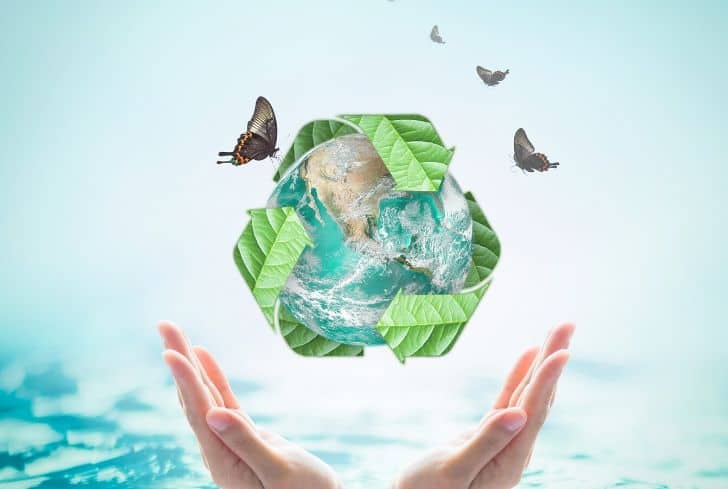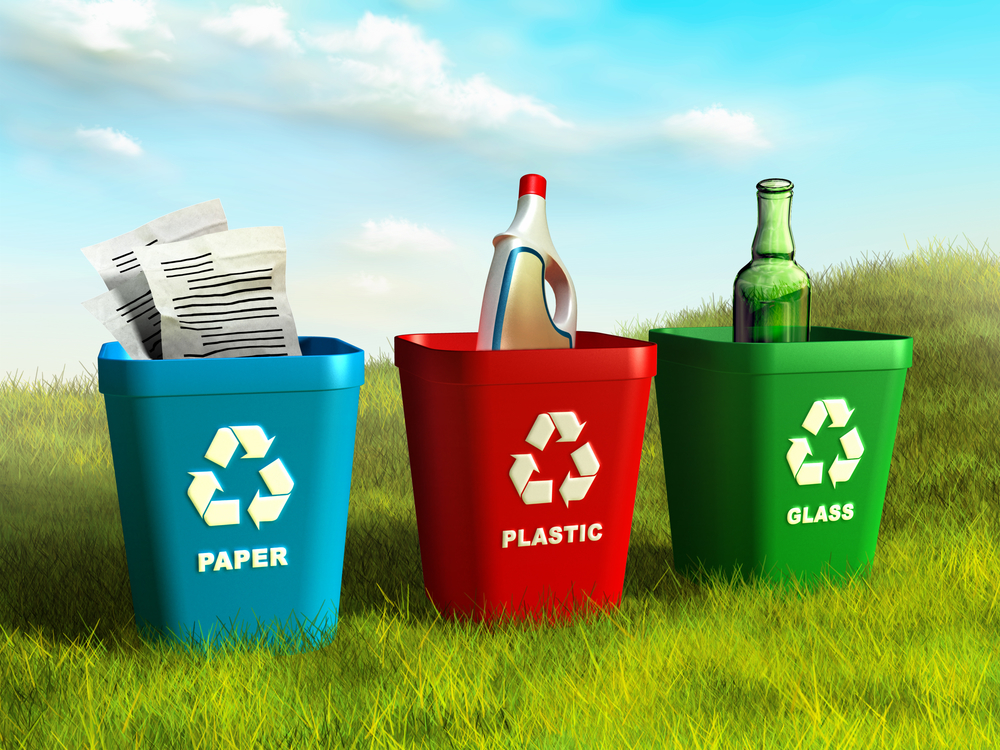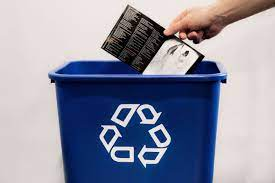Recycling – How It Works, And Why You Should Care: Everything You Need to Know About Recycling

Ammy Harryy, a devoted advocate for sustainable fashion and mindful…
It’s no secret that recycling is essential. It’s one of the easiest and most effective ways to reduce your environmental impact.
But many people still don’t recycle properly or don’t know how it works.
Recycling is the process of turning old materials into new products. You can do the process with many different materials, including plastic, metal, and paper.
Recycling is important because it helps reduce pollution and save energy.
Recycling also helps conserve natural resources. When we use recycled materials instead of raw materials, we need to mine and quarry for less.
This saves energy, water, and other resources. Recycling also helps reduce greenhouse gas emissions, which contributes to climate change.
This blog post will discuss everything you need to know about recycling, including how it works and why it’s important.
We’ll also provide some tips on making recycling easier for your family and your community.
How Does Recycling Work?

Recycling is the process of turning waste materials into new products. It helps to reduce pollution and save energy.
There are a few different types of recycling, but the most common is called single-stream recycling.
With single-stream recycling, you have to put all your recyclable materials in one bin. The recycling company will come to collect the bin and recycle the materials.
Several materials can be recycled, including plastic, metal, paper, and glass.
There are specific guidelines for each type of material for what can be recycled and how it should be packaged.
How Does Recycling Get Sorted?

After the recycling company collects your bin, the materials will go to a sorting facility.
There, workers will separate the materials into different categories. Glass, plastic, and metal all have different weights and can be easily sorted this way.
Paper is more difficult to sort because it’s light and contaminated with other materials. The recycling company uses a machine called a paper baler to solve this problem.
The baler squeezes the paper together, making it denser and easier to sort.
What Happens To Recyclable Mterials?
Once the recyclables are sorted, they are sent to different factories to covert into new products.
For example, plastic can be melted down and turned into new bottles or containers.
Glass can convert into new glassware. Metal can be melted and turned into new cans or car parts.
And paper can be recycled into new paper products.
Why Should You Care About Recycling?

The recycling process is important to understand because it can help reduce the amount of waste we produce.
When we recycle, we take used materials and turn them into new products.
Recycling is one way we can all do our part in preserving the environment for future generations.
Recycling is so important because it helps reduce the amount of waste in landfills and conserves resources.
For a local recycling process, you have to keep objects smaller than your curbside recycling bin.
There are some reasons why recycling is so important. First, it reduces the amount of waste that ends up in landfills.
Landfill space is running out quickly, and when we fill up our landfills, we have to find somewhere else to put our trash. This creates environmental problems like air and water pollution.
It’s also good for the environment because it reduces pollution and greenhouse gas emissions. So next time you’re about to throw something away, think about whether or not it can be recycled!
What Do I Need To Know About Recycling?
There are many benefits to recycling, including:
- It helps reduce the amount of waste that goes into landfills.
- It reduces the amount of energy needed to produce new products from scratch.
- It helps conserve resources like water and oil.
- It helps reduce air pollution.
Reasons You Should Join Recycling Programs

There are many reasons you should join recycling programs. Some of these reasons include:
Conserving resources and preventing pollution
When you recycle, you help conserve resources like oil and water, which reduces the amount of pollution produced.
Saving money
Recycling can save you money on your garbage bill because you produce less trash. It can also earn you money by selling recycled things.
Helping the environment
By recycling, you’re helping to preserve the earth’s resources and preventing pollution. It is important because it keeps our planet healthy for future generations.
Reducing greenhouse gas emissions
Recycling helps reduce greenhouse gas emissions, a leading cause of global warming.
Detailed Steps Of The Recycling Process:

Recycling and reuse activities are common within the recycling centers to provide people with a safe and clean environment.
Household hazardous waste can be life-threatening, such as plastic bottles, food waste, bottle caps, plastic straws, dirty diapers, soup cans, and even aerosol cans.
The recycling program occurs with the support of specific equipment and technology to capture recyclable material out of the recycling stream.
Let’s discuss the entire process!
Collection:
The collecting process involves gathering materials from households and businesses.
Transportation
The recyclable materials are transported to a city’s recycling facility to develop them into new products.
That’s because non-recyclable items can be deadly to the entire system.
Sorting and Cleaning
At the recycling facility, the recyclable materials are sorted and cleaned.
Preparation for Sale
The recyclable items are prepared for sale to companies that manufacture new products from recycled materials.
Purchase of New Products
Consumers purchase new products made from recycled products and make it a business.
What Are The Different Recycling Options Available?

There are many different recycling options available to people. Some of the most common include:
- Recycling paper
- Recycle plastic bags
- Recycling aluminum
- Recycling glass
- Composting organic materials collected
Each of these options has its benefits, and it is vital to research which option will work best for the materials you want to recycle.
Some recycling options are more effective than others, and some may not be available in your area.
The most important thing to remember when recycling is reducing, reusing, and recycling!
We can help preserve our planet and its resources by doing these things.
What Are The Five Benefits Of Recycling?

When you recycle, you are doing your part to help conserve resources, reduce the amount of waste in landfills, and save energy.
Here are five detailed benefits of recycling:
Conserving Natural Resources:
When you recycle, you are using materials that have already been created instead of extracting new materials from the earth.
It conserves resources like water, trees, and minerals and reduces pollution caused by extracting and processing new materials.
Reducing Waste in Landfills
Recycling helps to reduce the amount of waste that goes into landfills. In the United States, over 70% of the trash thrown away could be recycled or composted.
Saving Energy
Recycling can also save energy. For example, recycling aluminum cans saves 95% of the usable energy to create new cans from scratch.
Creating Jobs
Recycling can create jobs in the community. More than one .1 million people in the United States are employed in the recycling and reuse industry.
Helping to Combat Climate Change
Recycling and composting can help to combat climate change. If we recycle and compost more, we can reduce our greenhouse gas emissions.
Ten Tips For Recycling Better

1. Reduce the amount of waste you produce overall by choosing products with less packaging and recycling as much as possible.
2. If you have to purchase something in packaging, try to recycle it afterward. Many stores have recycling bins for cardboard, plastic, and glass.
3. Avoid using disposable items such as paper plates, plastic utensils, and paper towels. Instead, opt for reusable dishware and cloth towels.
4. Bring your bags when shopping to reduce the amount of packaging waste and avoid having to pay for plastic or paper bags.
5. Recycle glass bottles, metal cans, plastic waste, and newspapers.
6. Donate unwanted items such as clothes, furniture, and toys to charity or thrift stores instead of throwing them away.
7. Compost food scraps and yard waste instead of putting them in the trash. It will reduce the amount of waste going to landfills and help your plants grow!
8. Repair broken items instead of throwing them away.
9. Educate your family and friends about recycling and how it can help improve the surroundings.
10. Use a rain barrel to water your plants or garden to collect rainwater. This will reduce the amount of water you use from the tap, and it’s free!
Final Thoughts
Recycling is a necessary process that helps keep our earth clean.
By recycling, we can reuse materials and reduce the amount of waste sent to landfills each year.
It’s easy to recycle, and there are many benefits for both the environment and your wallet.
We hope this article has given you a better understanding of recycling- how it works, why it’s essential, and what you can do to help.
Recycling is one small but impactful way we can make a difference for the environment.
If we all work together to recycle more materials, we can reduce our reliance on landfills and conserve valuable resources.
So start recycling today!
Ammy Harryy, a devoted advocate for sustainable fashion and mindful living, exudes a profound passion for nature and the environment. Her mission intertwines style and consciousness, inspiring eco-friendly choices. With her words, Ammy envisions a world where fashion harmonizes with the planet, urging readers to take small steps toward a greener future.



